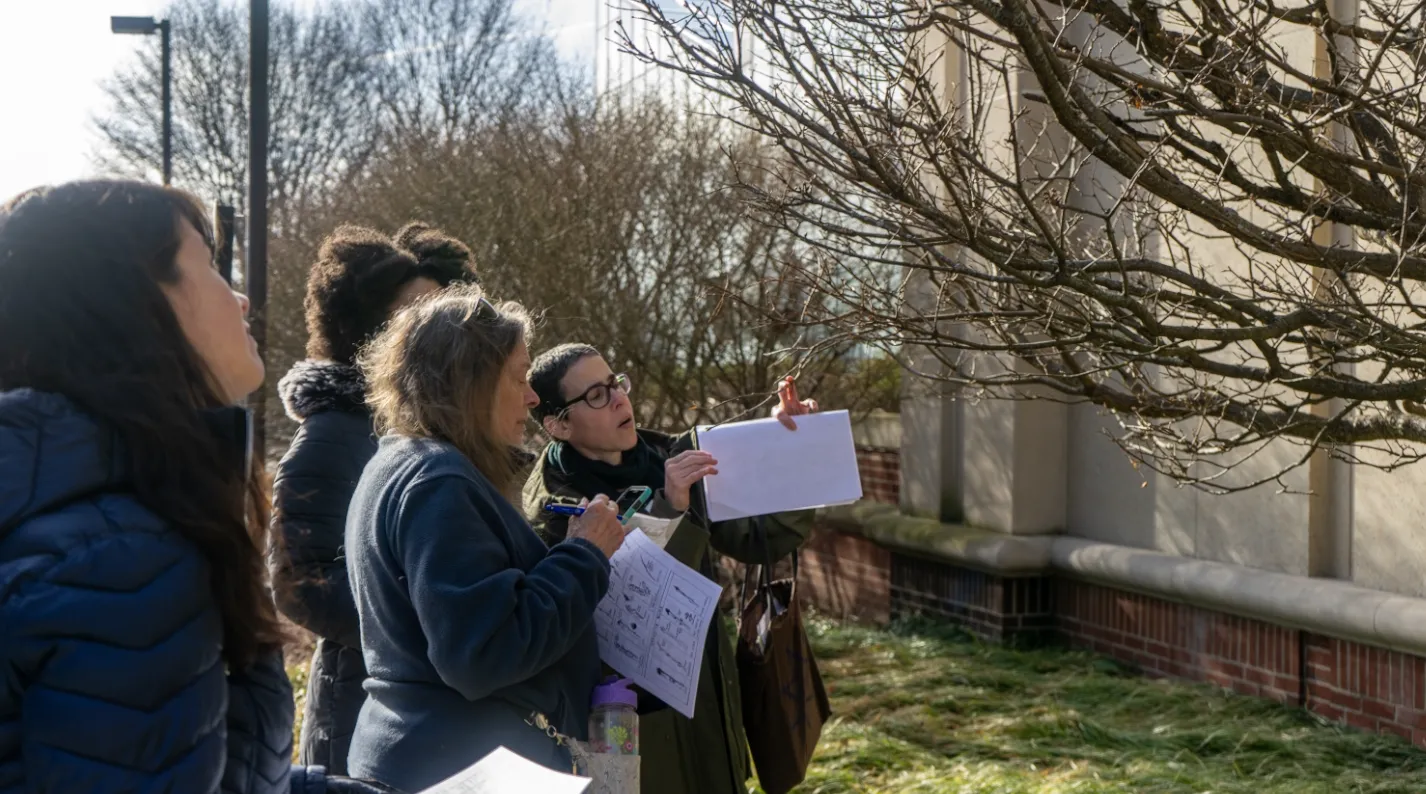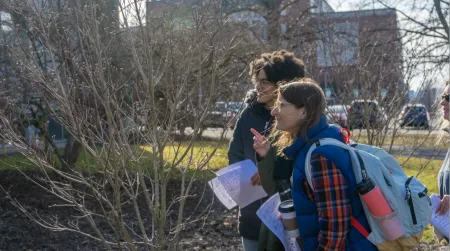One of the best things about Ithaca College is how it is nestled into the natural beauty of the region, with lush trees, trails, and greenery in abundance.
For students, faculty, and staff, that means there’s ample opportunity to experience nature — and its benefits — without leaving campus.
That’s one of the aims of the Ithaca College chapter of NatureRx, a national network of colleges and universities dedicated to improving student mental health through time spent in nature.
In the book “Nature Rx: Improving College-Student Mental Health,” authors Donald Rakow and Gregory Eells analyzed programming by colleges and universities encouraging the use of nature as a resource for student well-being.
In January 2019, representatives from four campuses—Cornell University, the University of California-Davis, the University of Minnesota, and William & Mary—met to discuss each of the school’s approaches. It was determined that the creation of Campus NatureRx could help campuses share their innovative ways of encouraging students to spend time in nature.

